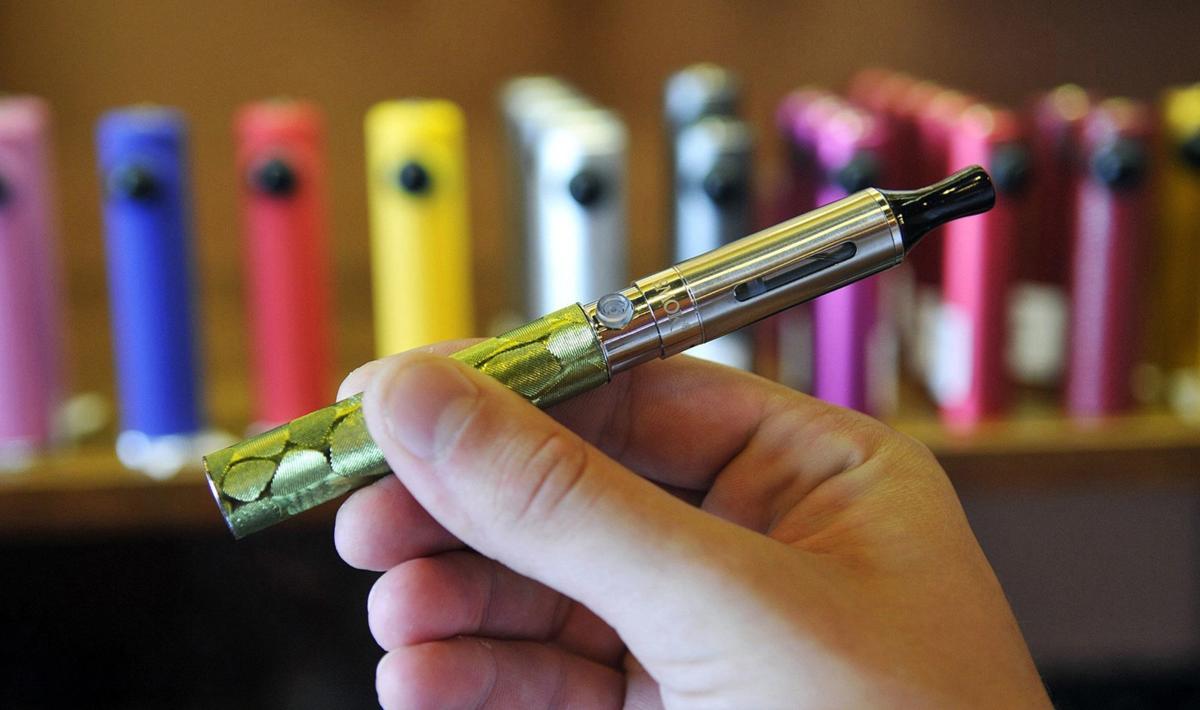PHOENIX — Alarmed by the sharp increase of youth vaping, state health officials are preparing a campaign they hope will scare teens from starting, or will get them to quit.
But what will work is still up for debate.
There has been a steady decline in teen smoking, said Wayne Tormala, chief of the Arizona Department of Health Services’ Bureau of Tobacco and Chronic Disease.
The most recent data says 7 percent of those younger than 18 have had a cigarette in the past 30 days.
But electronic cigarettes and similar devices have been used by close to 89,000 in the same age group, more than 16 percent.
The federal Food and Drug Administration announced new restrictions Thursday on the sale of flavored tobacco and vaping products. Under the new rules, the products can be sold only in stores that don’t allow minors younger than smoking age in the door.
Most immediately affected will be convenience stores and gas stations, meaning customers who want flavored products will have to go to shops that specialize in tobacco and vaping products.
But it could take some time for retailers to comply.
In the meantime, Arizona already has a name for its new ad campaign: Facts Over Flavor. The companies manufacturing these items have infused them with tastes that health officials say are designed to entice new users, not to help adults quit tobacco.
“When one of your most prolific sales of vape products goes to flavors called Fruity Pebbles, that’s hardly marketing to people my age,” said Tormala, who is 71.
But the problem, he said, is finding a counter-message that works.
The the main thing that influences teens is what other teens are saying and doing, he said.
“Who do kids listen to, who are their trusted messengers?” he asked.
“They’re each other,” Tormala said. “And when you get youth talking to each other about issues you tend to get a better response.”
Most significant, he said, is having teens involved in the planning that’s taking place.
“If I’ve learned anything in the past decade or so of marketing around these products, it’s just that usually what I think is a good idea isn’t a good idea because I’m not the target audience,”’ Tormala explained.
Tormala said at least part of the focus has to be on convincing teens that the whole idea of flavored vaping is aimed at getting them to try it — and getting them hooked. And he believes some facts will help drive that home.
“When we confiscate products from youth and send it over to the state lab here, 97 percent of the products contain high concentrations of nicotine,” he said.
While purchase of tobacco and similar products is legal statewide at 18, two Arizona communities, Douglas and Cottonwood, have raised the age to buy and use these to 21.
About a dozen other cities and towns, including Tucson, are weighing similar ordinances.
The state health department has taken no official position on the issue, deferring to the Legislature, which would have to make the call. But Tormala said he personally supports a higher age restriction.
“If you can make something illegal, you’re going to have less use,” he said.
One complicating factor is that e-cigarettes and other vaping devices are being promoted to adults as a method of quitting cigarettes.
“Whether it’s smoking or vape use, the biggest influence is the behavior of the parents,” Tormala said. “So when parents smoke, we know there’s a higher risk of kids smoking. When parents vape, there’s a higher risk of kids vaping.”
Parents need to be convinced that if they’re going to use one of these cigarette alternatives, they should do it “away from your kids,” he said.





